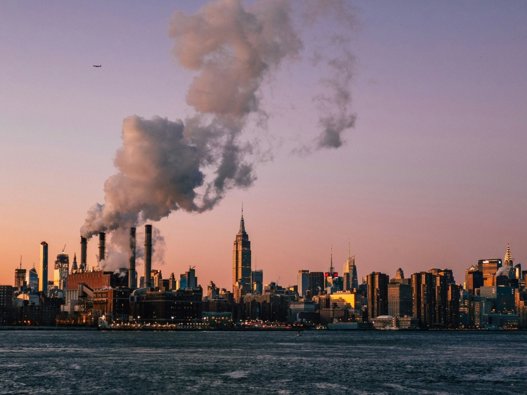
States Battle NY’s $75B Climate Law for Energy Firms
West Virginia leads a multi-state lawsuit warning New York’s $75B climate law will spike costs and hurt U.S. energy.
States Warn of Economic Fallout as New York Climate Law Advances
West Virginia Attorney General JB McCuskey has sounded the alarm over New York’s sweeping new climate law, which could impose up to $75 billion in liabilities on major fossil fuel companies for their role in climate change. The law, signed by Governor Kathy Hochul, requires companies to pay into a state-run “climate super-fund” based on their emissions, a move McCuskey warns will have consequences far beyond New York’s borders.
“It would be catastrophic, not just for the economies of West Virginia, Kentucky and Pennsylvania, but the economies of every state,” McCuskey said Friday, highlighting that these states play key roles in powering New York’s electrical grid. He cautioned that restricting access to reliable, affordable electricity—currently made possible by fossil fuels—could lead to soaring energy bills for Americans nationwide. McCuskey emphasized the irony of New York City relying on power and materials from other states, even as city dwellers push for measures that could threaten those industries.
McCuskey is leading about 20 states in a legal challenge to New York’s law, arguing that the legislation will raise costs for goods, transportation, and everyday life—not just energy. The attorney general also highlighted that a second lawsuit is targeting a similar law enacted in Vermont, which, unlike New York’s measure, does not have a $75 billion liability cap. Hearings for the New York lawsuit are expected to begin in July, but McCuskey predicts the Supreme Court will ultimately decide the law’s fate.
Supporters Defend Climate Superfund as Polluters Push Back
Governor Hochul has defended the law, stating that extreme weather is already costing New Yorkers billions in health and environmental damage. “Establishing the Climate Superfund is the latest example of my administration taking action to hold polluters responsible for the damage done to our environment and requiring major investments in infrastructure and other projects critical to protecting our communities and economy,” Hochul said in a statement.
Supporters argue that fossil fuel companies must be held accountable for the environmental costs their emissions create. Vermont’s law—left unsigned but enacted by Republican Governor Phil Scott—faces similar opposition. Vermont State Representative Martin LaLonde said, “Big Oil will fight this in the courts,” but maintained that “costs are too steep for Vermonters to release corporations that caused this mess from their obligation to help clean it up.”
McCuskey warned that if states across the country follow New York’s example, multiplying the $75 billion liability, the cumulative cost could bankrupt energy firms and threaten the national energy supply. Other states, including Illinois, Massachusetts, and California, are considering similar legislation, adding urgency to the ongoing legal battles.
The high-profile fight over New York’s law comes as legal and political battles over climate accountability gain momentum nationwide. Energy sector advocates argue that states with economies deeply tied to coal and gas, like West Virginia, face devastating impacts if such laws become widespread. Bipartisan concern is rare, but on this issue, leaders across West Virginia have united to oppose efforts they say threaten energy reliability and economic stability.






